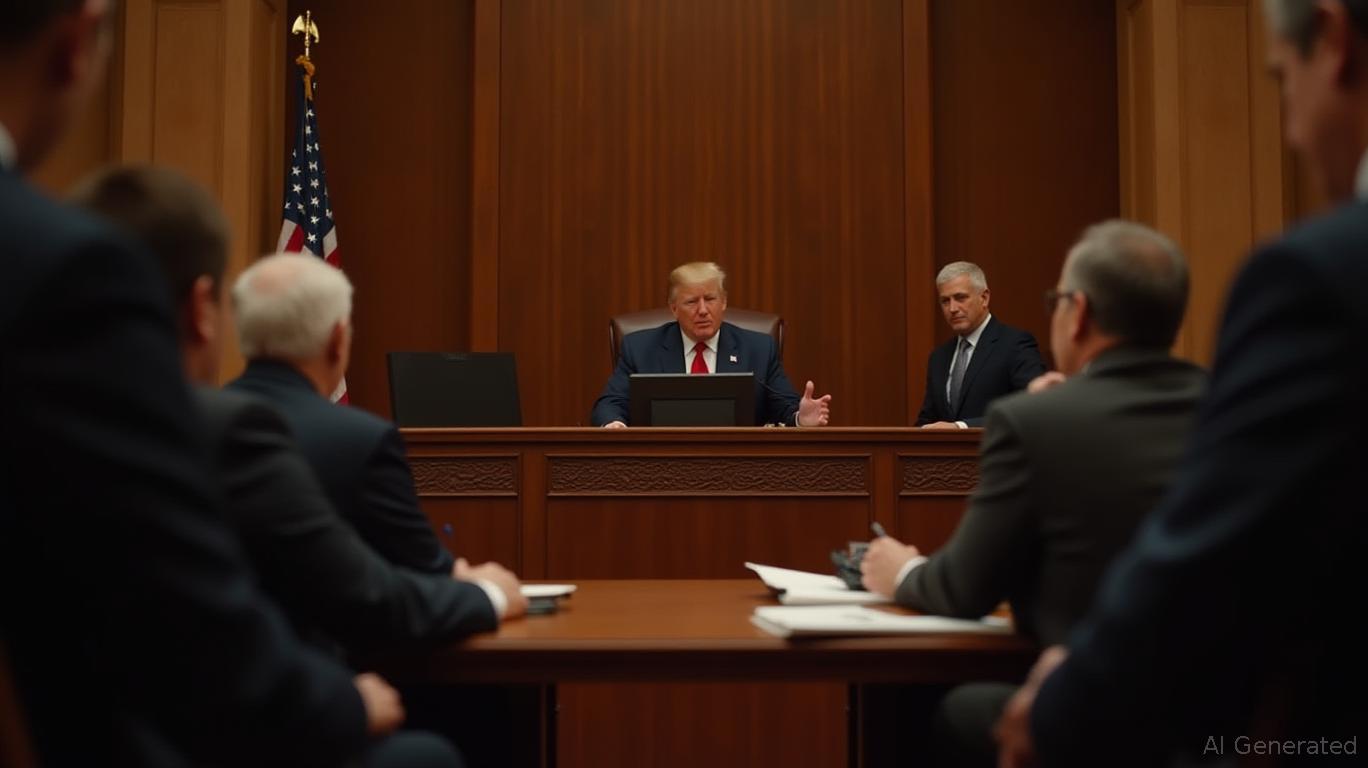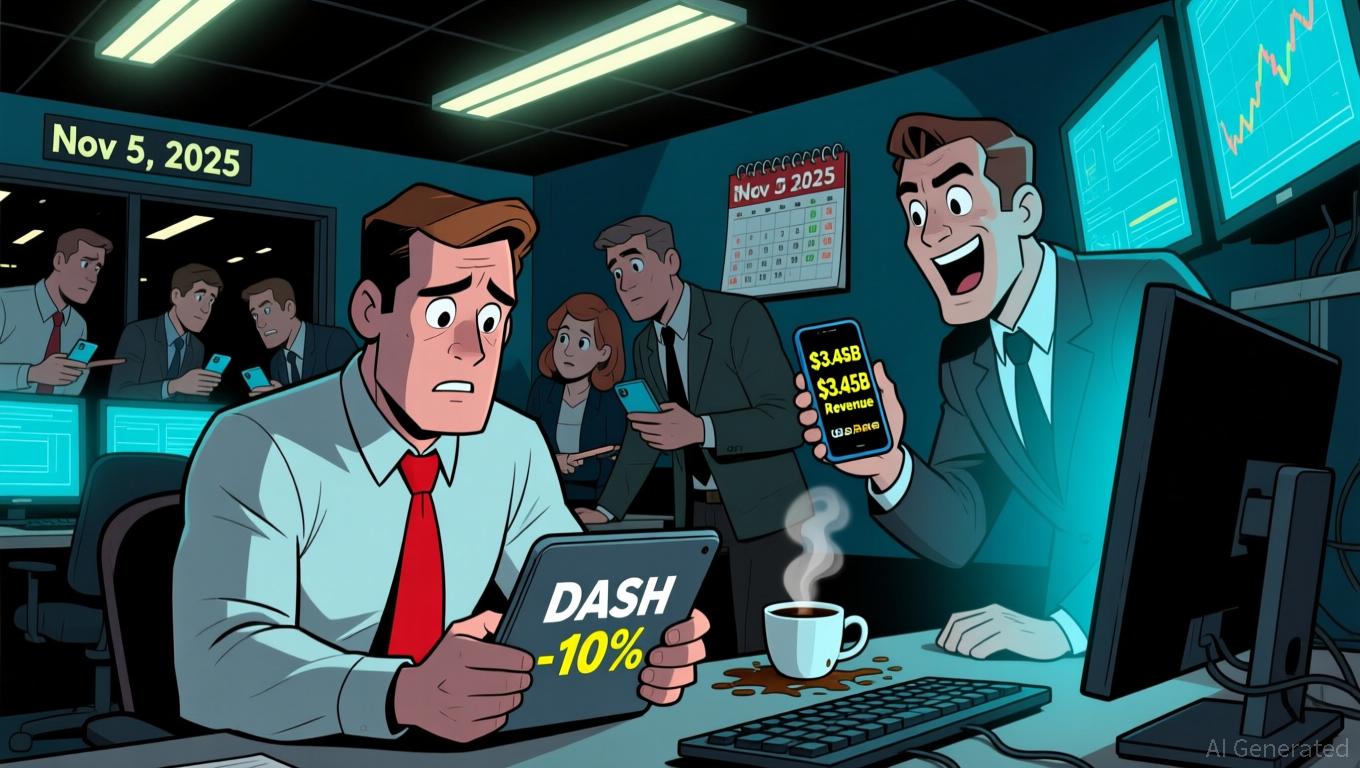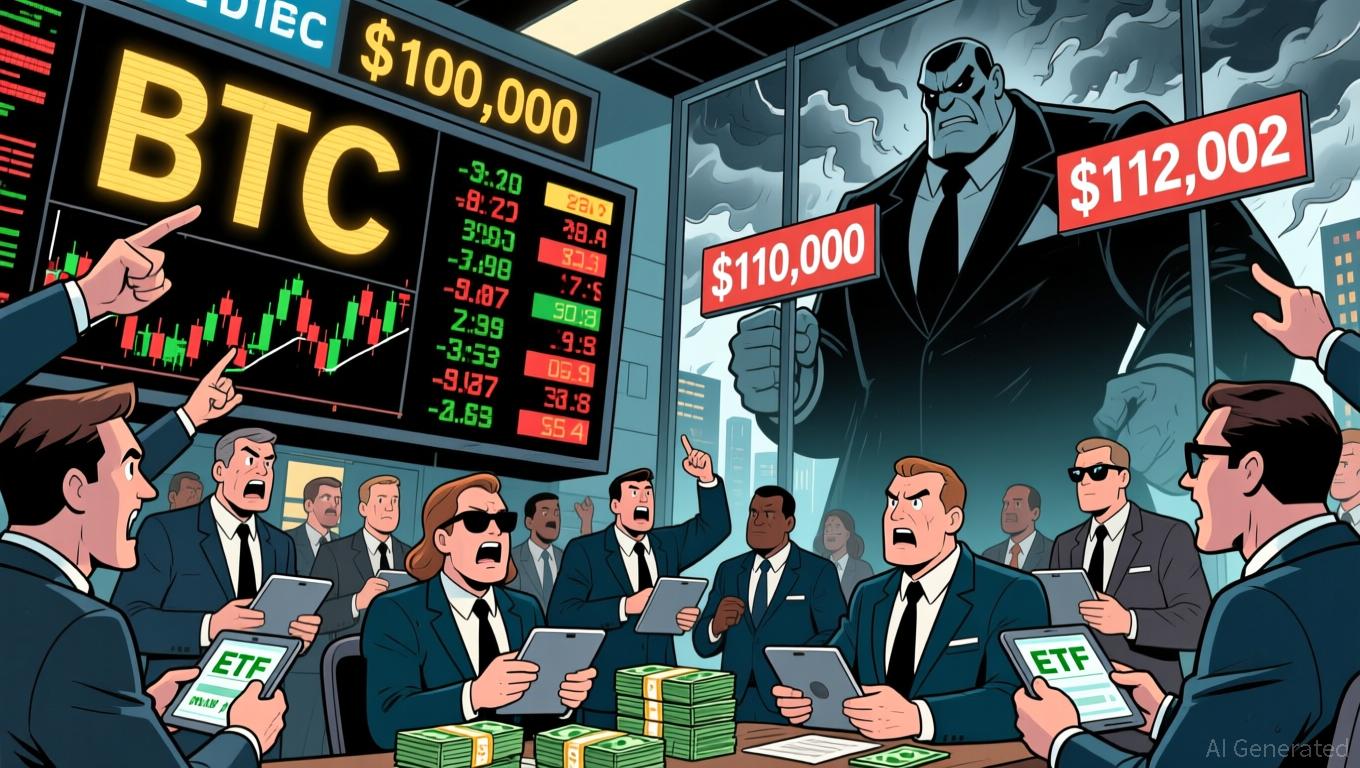Supreme Court Decision on Tariffs May Require $140 Billion in Refunds and Prompt Federal Reserve to Lower Rates
- UBS warns a Supreme Court ruling against Trump's tariffs could force $140B refunds, straining U.S. fiscal resources and prompting potential Fed rate cuts. - The refunds stem from 39% Swiss tariffs deemed potentially unlawful, with fiscal impact equivalent to 7.9% of 2025's projected budget deficit. - Legal challenges highlight executive overreach risks, while reduced tariffs could boost consumer spending and ease inflation, creating room for Fed easing. - Swiss business leaders have lobbied Trump to lowe
UBS Group AG has cautioned that if the Supreme Court rules against former President Donald Trump’s prominent tariff measures, the U.S. government may be compelled to return $140 billion in tariffs, putting pressure on federal finances and potentially paving the way for the Federal Reserve to lower interest rates. The Swiss financial institution’s recent
The possible repayments are linked to ongoing lawsuits challenging Trump’s 39% tariffs on Swiss imports—the steepest among developed nations—as well as similar duties targeting other countries. Should the court find these tariffs illegal, the U.S. Treasury would be required to issue substantial refunds, amounting to 7.9% of the projected 2025 federal deficit, according to the

The fiscal consequences could encourage the Fed to adopt a more accommodative stance. UBS suggests that if tariffs are lowered following a court decision, American consumers would see increased purchasing power, inflation would ease, and the central bank would have more scope to cut rates. "This scenario would allow the Fed to move toward policy normalization without the risk of runaway inflation," UBS notes. This view is consistent with market sentiment, as investors are already expecting a rate reduction in December, with additional cuts likely in 2026, according to a
The legal dispute over tariffs has escalated as the Supreme Court considers whether the Trump administration exceeded its powers under the International Emergency Economic Powers Act. A
UBS also points out that the overall market effect of tariff refunds would be modest. While importers might benefit from lower expenses, these gains are unlikely to meaningfully impact S&P 500 profit forecasts, since tariffs have not been a major drag on corporate earnings, the bank observes. UBS expects that if trading partners avoid retaliatory actions, the U.S. economy would remain stable and equity markets would likely react positively to reduced trade friction.
Nonetheless, the Fed’s willingness to cut rates will depend on the broader economic environment. Officials from the Trump administration, including Treasury Secretary Scott Bessent, have warned of possible recession risks and urged the Fed to act swiftly, as reported by the
With legal and economic factors intersecting, UBS’s analysis frames the potential rollback of Trump-era tariffs as a turning point for U.S. fiscal and monetary strategy. The decision could reshape trade policy and provide the Fed with an opportunity to adjust its approach in the wake of the pandemic.
Disclaimer: The content of this article solely reflects the author's opinion and does not represent the platform in any capacity. This article is not intended to serve as a reference for making investment decisions.
You may also like
XRP News Today: Mastercard’s Blockchain Initiative: Regulated Networks Set to Transform International Payments
- Mastercard explores $1.5B-$2B acquisition of MiCAR-licensed crypto infrastructure firm Zerohash to expand Web3 capabilities. - Partners with Ripple to pilot RLUSD stablecoin for credit card settlements on XRP Ledger, enabling instant cross-border transactions. - Zerohash's regulatory compliance and $1B valuation align with Mastercard's strategy to bridge traditional finance and blockchain infrastructure. - RLUSD's NYDFS-backed growth and XRP Ledger integration could reshape global payments while reinforc
DoorDash Shares Drop 10% as Focus on Growth Reinvestment Outweighs Earnings Outperformance
- DoorDash's stock fell over 10% post-earnings despite $3.45B revenue beat, driven by 25% GOV growth and 21% order increase. - Management signaled $300M+ 2026 AI/tool investments and revised Deliveroo's EBITDA contribution down by $32-40M due to accounting changes. - Analysts cut price targets (Wells Fargo to $239) as $754M adjusted EBITDA (up 41%) was overshadowed by reinvestment concerns despite $723M free cash flow. - 42% YTD gains amplified sell-off sensitivity, with 31 analysts retaining "Moderate Buy

Savers Confront a Choice: Lock in Safe 5% Returns or Chase DeFi's Tempting 12%
- Fed rate cuts in 2025 spurred high-yield savings accounts offering up to 5.00% APY, outpacing traditional banks' 0.40% average. - DeFi platforms like ZEROBASE and Maple Finance offer 12-7% APY on stablecoins, but require higher risk tolerance and short liquidity periods. - Banks may reduce APYs if further Fed cuts occur, while FDIC-insured high-yield accounts remain popular for inflation protection. - Alternative assets like Bitcoin and dividend stocks (e.g., Viper Energy's 3.49% yield) show growing comp

Bitcoin News Update: Institutions Remain Wary as Retail Investors Drive Crypto Innovation—The Battle for Dominance Escalates
- Bitcoin fluctuates near $110,000 amid ETF outflows and revised institutional price targets, with long-term holders creating resistance through strategic BTC distributions. - Ethereum and XRP show resilience with ETF inflows and whale activity, while emerging projects like Remittix ($27.8M raised) and Noomez gain traction through innovative tokenomics. - Analysts remain divided: some see $120,000 potential if Bitcoin breaks key averages, while others warn of $72,000 corrections amid macroeconomic uncertai
